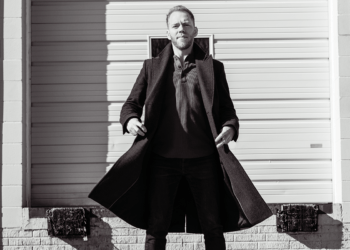To industries that depend on verification as a core factor of their business, blockchain technology has much to offer, according to Erica Wassinger, co-founder of The Startup Collaborative and senior director of entrepreneurship and innovation for the Greater Omaha Chamber. B2B recently caught up with Wassinger to get her take on blockchain and its benefits to companies in Omaha and elsewhere.
B2B: Please explain what blockchain technology is.
Wassinger: Blockchain is a new form of the internet. The distinguishing factor between blockchain and the internet as we know it now is the fact that blockchain is not controlled by any central entity or person. It’s completely decentralized and distributed. Think of it like a public ledger that can record transactions of any type. A simple parallel might be that it can be a supply chain for just about anything, including information. When you dig deeply into the industries of Omaha, you think about our density within the supply chain. We’re home to Union Pacific, Werner Enterprises, and some of these big logistics companies. Blockchain fits really nicely into the business models of those types of companies because it allows any organization or person to verify where something is on the supply chain.
B2B: To make use of blockchain, you have to be appropriately credentialed, digitally, right?
Wassinger: To an extent. Businesses can operate on blockchain, any person can cooperate on it. If you want to develop on the blockchain, it does require a certain level of skill. There are very few developers. I heard one source say there are as few as 1,300 true blockchain developers in the world.
B2B: What are those individuals doing? Developing applications for different products?
Wassinger: Yes. They’re thinking of different use cases just like we would for the internet, where we think of how to create a web platform or an app that solves a problem. Blockchain developers are doing that same thing for blockchain use cases.
B2B: What are some blockchain use cases?
Wassinger: You see blockchain used in the food industry with the verification of crop growth product formation. For example, if, as a consumer, I want to eat a food, and it matters to me greatly that that is a wholly organic food, I might want to go all the way back to the point at which that was planted in the soil to figure out how the crop was treated, how often was it watered, when was it harvested, where did it go, and what happened to it at the next facility.
B2B: Is supply chain verification the most popular use of blockchain?
Wassinger: Yes, at least here in the Nebraska blockchain market, whether it’s the food supply chain or the information supply chain.
B2B: What are some local use cases for blockchain?
Wassinger: Let’s dig into the economy of Omaha. We’ve got deep density in financial services— everything from payment processing to banking to insurance. All those bases are completely ripe for blockchain technology, especially when you think about the need for authenticating things. Think about insurance, for example. Wouldn’t it be great if, upon buying a new policy, you could record every transaction very simply? That’s happening now with certain insurance companies. They’re testing that, and some are live right now. You can also look outside financial services and into the food industry. There’s a startup we are working with called BlockEra that’s working on an ingredient-to-table verification process. You can also think supply chain logistics. For example, if I am Union Pacific and I want to watch my train go from here to there, and I want to know what freight was loaded, when it was unloaded, and all of the details of that experience, blockchain becomes very relevant.
B2B: What about an international use case?
Wassinger: The United Nations, which works with massive refugee populations, has a really interesting blockchain use case. As a refugee, your anonymity is important to you—the ability to transact in any environment is important. You also fully expect to have a physical wallet on you to carry cash. You’re going to be crossing borders and deal with this, that, or the other. So the United Nations looked at that. We can respect these people’s anonymity through leveraging the block chain by giving refugees tokens that will allow them to transact across any border. As they reach certain points in their journey, we can make sure that they have enough tokens to fuel that piece of their journey.
B2B: The technology sounds great. How does anybody make money from it?
Wassinger: A lot of people are still trying to figure all of this out. Because the transactions are happening on blockchain, they require use of cryptocurrency. When you hear “cryptocurrency,” a lot of people are going to initially think of bitcoin. But there are several others that come up, Ether being one. Ether is the cryptocurrency of choice for the Ethereum blockchain. Ethereum is an open- source blockchain that is hinged around the idea of a smart contract, which is a really transparent way of two entities agreeing on a value for something and then recording that agreementrtransaction together.
B2B: Is there anything you’d like to add?
Wassinger: I think about Omaha and the talent pools we have here. I keep coming back to this: we’ve got really a strong agribusiness talent pool, we’ve got a really strong talent pool in supply chain and logistics, and we’ve got an incredibly dense and strong talent pool as it relates to financial services, insurance, and payment processing. I think our region needs to embrace blockchain. We need more people in the core industries where blockchain stands to be a major disruptive source to test and dabble and experiment earlier with the technology to look at it and say what levels of verification need to happen in those industries. I would love to see that embraced because I firmly believe that blockchain will be very important to the future of Omaha’s economy.
Visit blockgeeks.com for more information about blockchain.
This article was printed in the August/September 2018 edition of B2B.
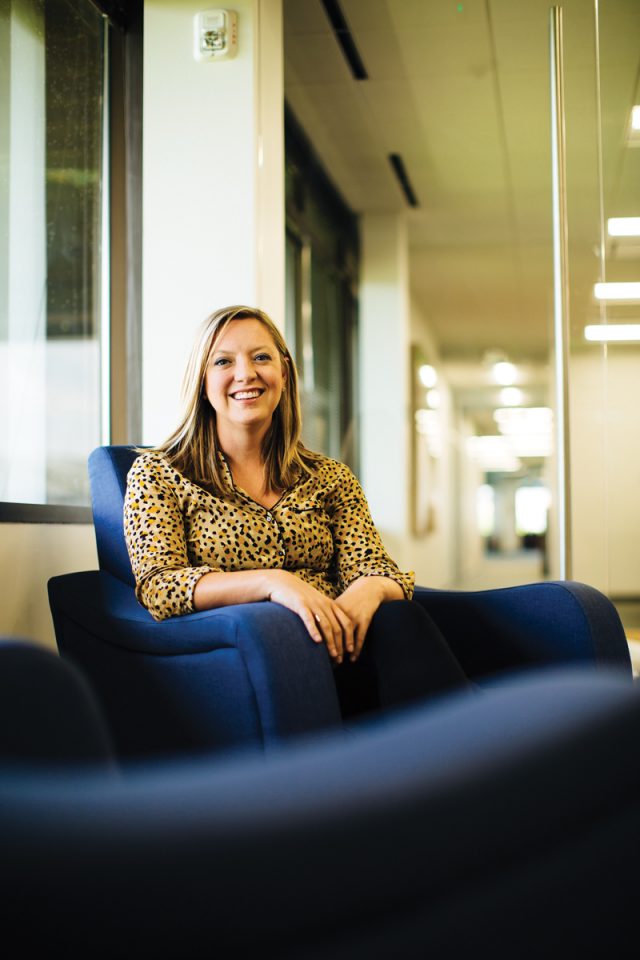


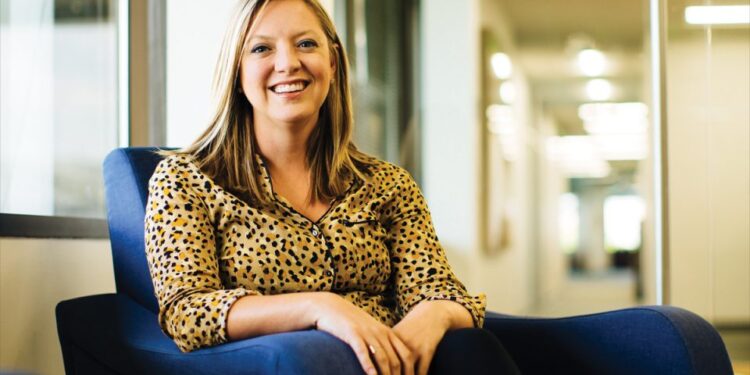
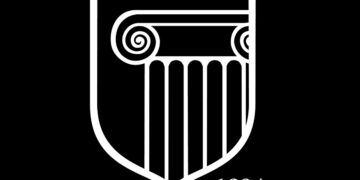


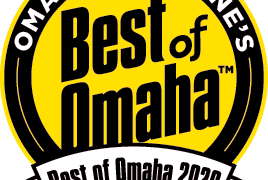


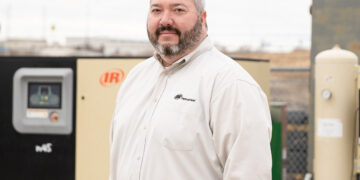

![[L to R] Daisy Hutzell-Rodman, Julius Fredrick, Kim Carpenter.](https://www.omahamagazine.com/wp-content/uploads/sites/2/2024/04/BTL-350x250.png)

